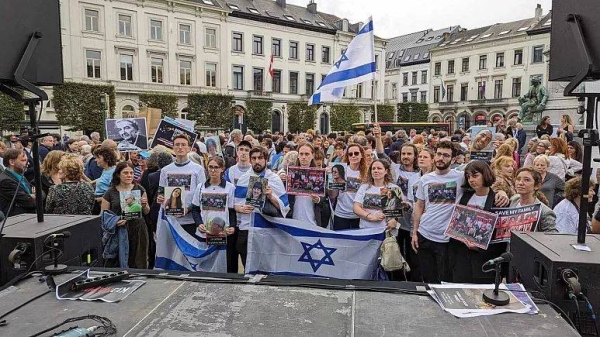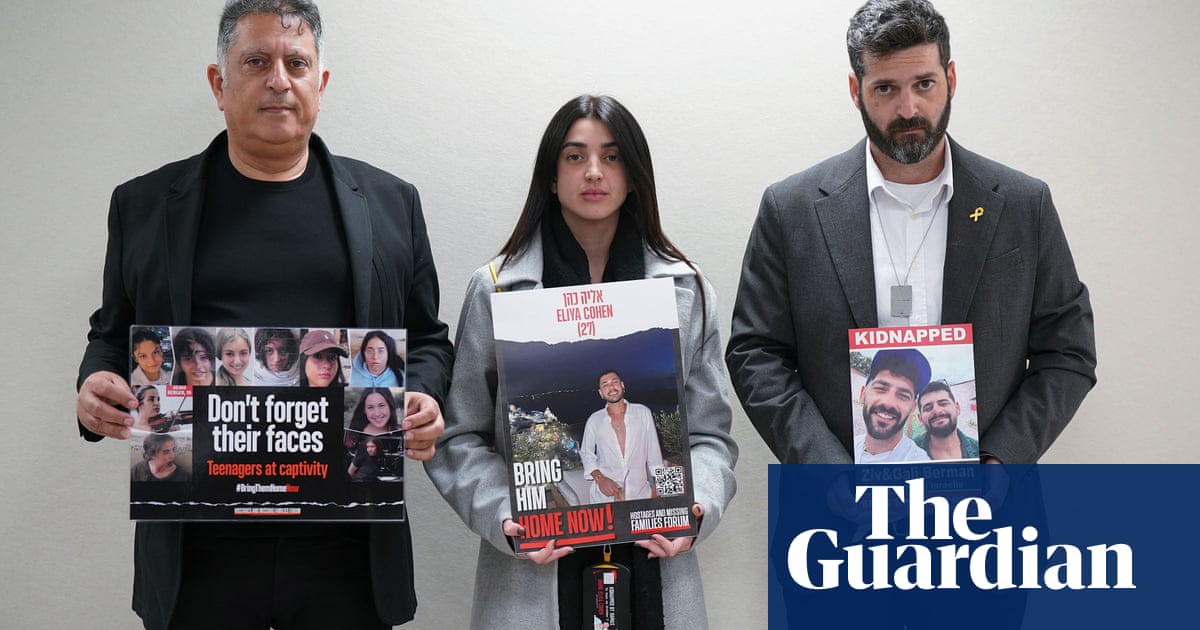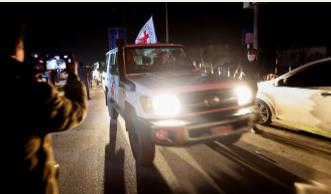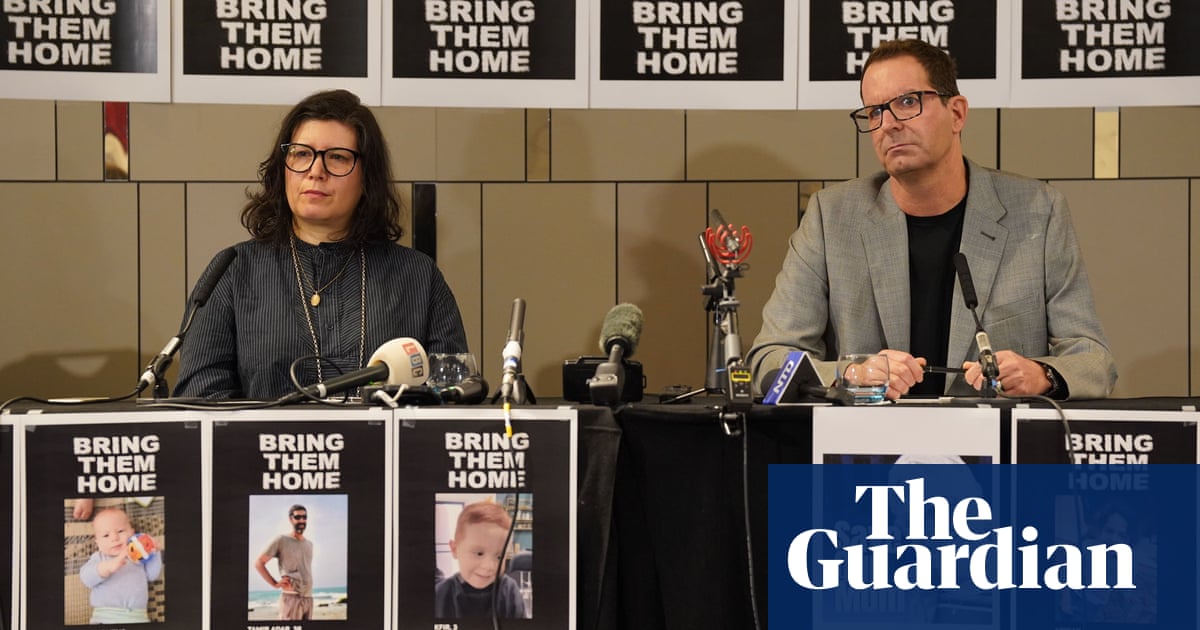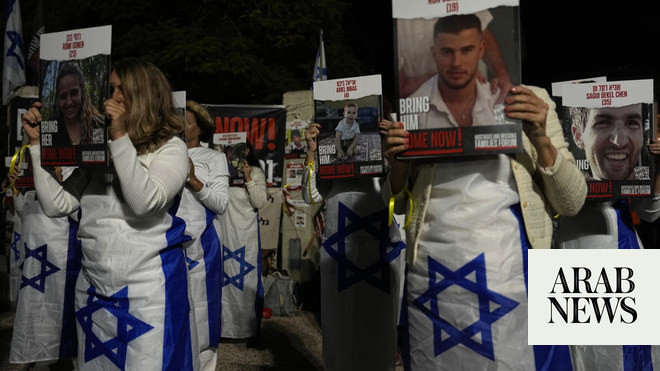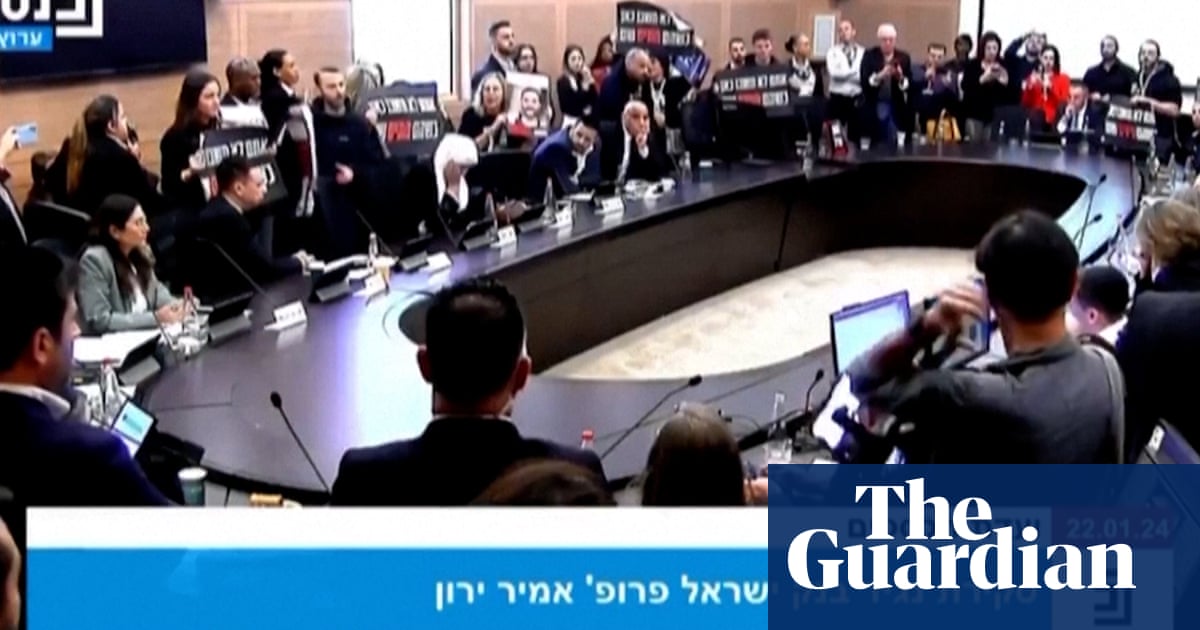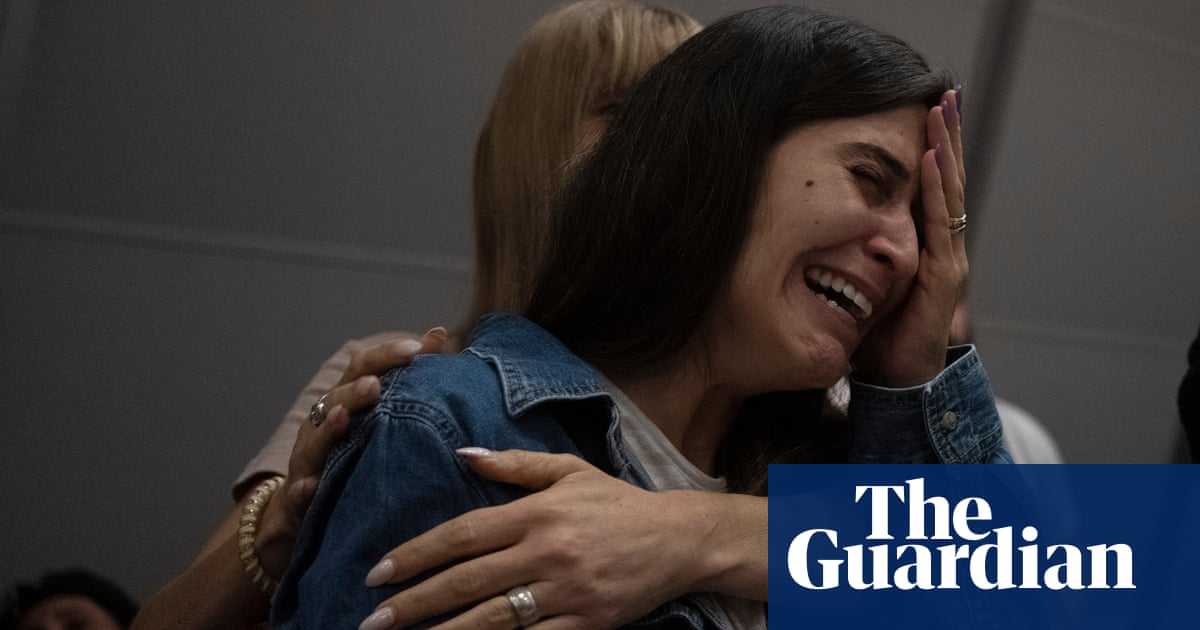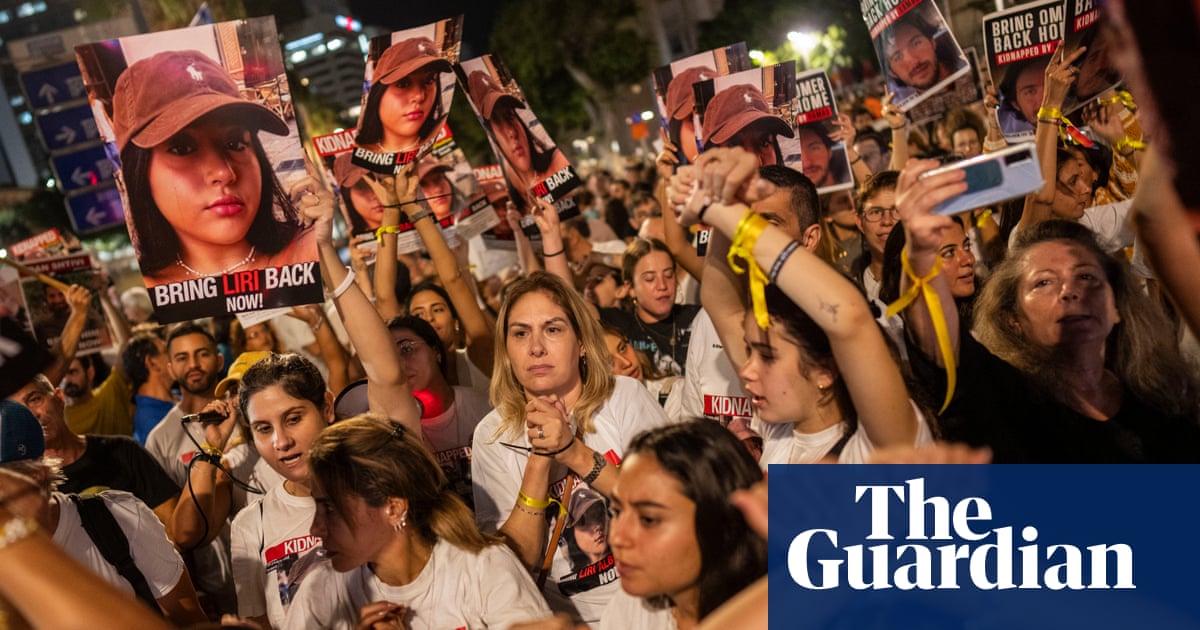
Relatives of Israeli hostages held by Hamas in Gaza are calling on Benjamin Netanyahu to make significant concessions to secure the freedom of their loved ones.
The Israeli prime minister has told families that freeing the hostages is “one of the missions” of the war being waged against Hamas, but has so far not said that he will prioritise obtaining their release above the military objective of destroying the extremist Islamist organisation.
The hostages, including infants, dozens of children and many elderly people, were seized during the terrorist attacks on southern Israel last month in which 1,400 people, mainly civilians, were killed. There are also military personnel among those captured.
As the initial shock has faded, public anger in Israel has grown, with many families of the hostages held in Gaza bitterly critical of the government response.
Dozens of rallies were held across the country on Saturday in support of the hostages. In Tel Aviv, a traditional Shabbat dinner table with places for the missing was laid out in front of the main art gallery. Yellow ribbons were distributed and the ground covered with pictures of the missing.
Some relatives said they favoured a deal that might involve the release of all Palestinian prisoners held in Israel, a demand repeatedly made by Hamas. Others simply spoke of significant concessions.
Maya Moshe said Hamas intruders killed her 75-year-old father, Said, at the Nir Oz kibbutz and abducted her mother, Adina, 72.
The elderly couple had hidden in their home’s safe room, Moshe said, and her father was shot through its door as the attackers tried to break in. A video clip later emerged showing her mother being taken to Gaza on a motorbike.
“I can’t do anything now for my father but I have to do all I can for my mother and all the other hostages. As a country we cannot allow that these people don’t come back,” she said. “The Israeli government must start serious negotiations with Hamas. They are monsters and have done horrible crimes but there is no choice.”
Shai Wenkert, whose son Omer, 22, was taken by Hamas on 7 October, said he met Netanyahu as part of a delegation a week after the conflict began and was promised that freeing the hostages was “one of the missions” of the war.
“It’s difficult. I am not a politician or a soldier. I trust the IDF. But we need to get them out. The responsibility of the government is to bring them home,” Wenkert, 51, said. “I am a father and a citizen and I want my son back. It has been a month. I hope that Hamas keep him alive. For me everything is negotiable. I want my son and all the hostages to come back.”
Government and military officials have argued that the offensive in Gaza will increase the pressure on the Islamist extremist movement to give up the captives, but only four hostages have been released despite weeks of bombardment, ground attacks and the deaths of more than 9,000 people in the region, according to statistics from local health authorities in the Hamas-run enclave. One hostage has been rescued by the Israeli military.
In 2011, Netanyahu agreed to free 1,027 prisoners in exchange for a single Israeli soldier captured by Hamas five years earlier. The released men included some now blamed for the 7 October attacks.
Dr Gershon Baskin, an Israeli civilian who helped to negotiate that deal, said there had been a dramatic shift in public opinion in Israel.
“There was almost unanimity that the priority was to dismantle Hamas, to remove any threat to Israel, but now the voices we are hearing more and more are saying the nation has a moral responsibility to bring all of [the hostages] back,” Baskin, the Middle East director of the International Communities Organization, said.
Others took a harder line. Ella Ben Ami, 23, whose parents, Raz and Oded, are being held hostage, said: “We struggle understanding how trucks with humanitarian aid enter for the monsters who raped and slaughtered, who still have not ended the event by holding children, ill and elderly hostage. The Red Cross has still not met with the hostages so far, nor provided assistance, and then comes with demands to provide aid to Hamas prisoners here in Israel. My mum is an ill woman and needs medication.”
The pressure on Netanyahu from the hostages’ families is beginning to fuse with wider anger. Police held back protesters outside Netanyahu’s official residence in Jerusalem on Saturday. Waving blue and white Israeli flags and chanting “Jail now!”, a crowd in the hundreds pushed through police barriers.
The protest coincided with a poll showing that more than three-quarters of Israelis believe Netanyahu should resign.
On Sunday, Netanyahu said: “There will be no ceasefire without the return of the hostages. We say this to our friends and to our enemies. We will continue until we defeat them.”
Experts have said the goal of “crushing” Hamas may be incompatible with freeing the more than 240 hostages, and some Israeli military officials privately admit that some kind of “very painful” deal may have to be done.
Qatar, which has been a key intermediary between Hamas and foreign governments seeking the release of their citizens among the hostages, warned on Saturday that the continued bombardment Gaza complicated its efforts.
Hamas spokespeople have said some hostages have been killed by bombardments since the beginning of the Israeli offensive. There has been no independent confirmation of this. Hamas has also said it does not control all the captives, with some held by criminal gangs.




